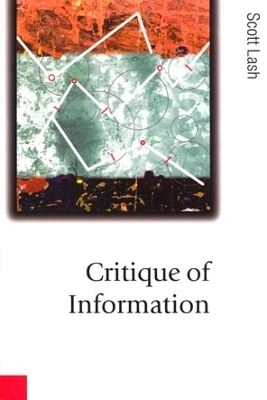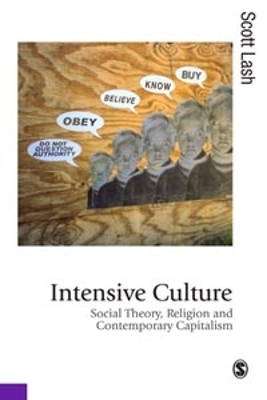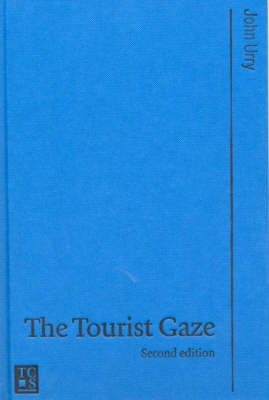Published in association with Theory, Culture & Society
5 total works
The operative unit of the information society is the idea. With the demise of depth reflection, reflexivity through the idea now operates external to the subject in its circulation through networks of humans and intelligent machines. It is these ideas that make the critique of information possible. This book is a major testament to the prospects of culture, politics and theory in the global information society.
We thus live in a culture that is both extensive and intensive. Indeed the more globally stretched and extensive social relations become the more they simultaneously seem to take on this intensity. Ours is a relational world where each intensity ? whether human, technological or biological ? provides a distinct, specific window onto the whole.
Lash tracks the emergence and pervasion of this intensive culture in society, religion, philosophy, language, communications, politics and the neo-liberal economy itself.
In so doing he redefines the work of Leibniz, Benjamin, Simmel, and Durkheim and inititates the reader into the ontological structures of our contemporary social relations. In the pursuit of intensive culture the reader is taken on an excursion from Karl Marx′s Capital to the ′information theology′ in the science fiction of Philip K. Dick.
Diverse, engaging and rich in detail the resulting book will be of interest to all those studying social and cultural theory, sociology, media and communication and cultural studies
Developing a comparative analysis of the UK and US, the new Germany and Japan, Lash and Urry show how restructuration after organized capitalism has its basis in increasingly reflexive social actors and organizations. The consequence is not only the much-vaunted `postmodern condition' but also a growth in reflexivity.
In exploring this new reflexive world, the authors argue that today's economies are increasingly ones of signs - information, symbols, images, desire - and of space, where both signs and social subjects - refugees, financiers, tourists and fl[ci]aneurs - are mobile over ever greater distances at ever greater speeds.
- Nigel Thrift, Vice-Chancellor, Warwick University
This new edition of a seminal text restructures, reworks and remakes the groundbreaking previous versions making this book even more relevant for tourism students, researchers and designers. 'The tourist gaze' remains an agenda setting theory. Packed full of fascinating insights this major new edition intelligently broadens its theoretical and geographical scope to provide an account which responds to various critiques.
All chapters have been significantly revised to include up-to-date empirical data, many new case studies and fresh concepts. Three new chapters have been added which explore:
photography and digitizationembodied performancesrisks and alternative futuresThis book is essential reading for all involved in contemporary tourism, leisure, cultural policy, design, economic regeneration, heritage and the arts.
This Second Edition deepens our understanding of how the tourist gaze orders and regulates the relationship with the tourist environment, demarcating the `other′ and identifying the `out-of-the-ordinary′. It elucidates the relationship between tourism and embodiment and elaborates on the connections between mobility as a mark of modern and postmodern experience and the attraction of tourism as a lifestyle choice.
The result is a book that builds on the proven strengths of the first edition and revitalizes the argument to address the needs of researchers and students in the new century.
Praise for the First Edition:
`There is much to be applauded here...this is an engaging and thought provoking book which should be read by those interested in advertising and the changing nature of contemporary culture′ - Contemporary Sociology
`The book is written in a very accessible style that would serve as a good point of entry for anyone interested in leisure, tourism, and cultural change in contemporary societies. The scope of Urry′s book is breathtaking, one is left with a feeling of coming to terms with the complex set of social relations that are tourism, both in their production and consumption′ - Planning Practice and Research



